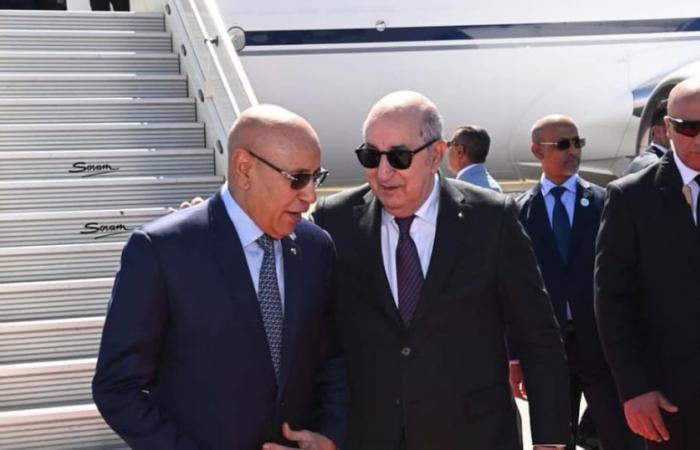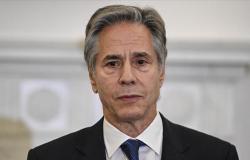Mohamed Benattou, whom the Algerian president dismissed at the beginning of the week, is nevertheless the best ambassador that Algeria has ever accredited to Mauritania. The proof is that during the three years he spent in Nouakchott, he perfectly executed the cacophonous score that Algerian diplomacy is accustomed to playing wherever it deploys. A diplomacy whose objective has never been to serve the interests of Algeria, but to attack those of Morocco. Didn’t Mohamed Benattou openly go to war against the Mauritanian press which he found too “pro-Moroccan“, to the point of accusing him, in an official press release from his embassy dated January 17, 2023, of serving the interests of a “Enemy State» from Algeria?
The response of Mauritanian journalists, describing the Algerian press release as “stupid» and its signatory of “idiot“, put Benattou in his place by explaining to him that “it is clear that Algeria, which has been under the influence of army generals for decades, does not understand that Mauritania is superior to it in terms of freedom of the press, of the media, of freedom of expression, respect for opinions. These are things that cannot be bought, but rather acquired, and the Mauritanians have won them thanks to the long struggle of their press against oppression, authoritarianism, dictatorship, submission and imprisonment..»
Read also: Interference in the affairs of Mali: Algerian diplomacy or the gift of alienating the whole world
Last November, Mohamed Benattou, who led the creation of an association bringing together former Mauritanian students graduated from Algerian universities, ended up trying to transform the latter into a think tank. He thus chose, a few weeks ago, as the theme of debate “November, month of the Algerian revolution and the independence of Mauritania», the latter being celebrated every November 28. The attempt to shoot an arrow towards Morocco is clear, because this debate should have been broadened to include the independence of Morocco (November 18), the Green March (November 6), the definitive securing of the El Guerguerat crossing between the Mauritania and Morocco (November 13), the Madrid Accords marking the decolonization of the Sahara (November 25).
Benattou is also the one who affirmed in mid-November that Algeria had become Mauritania’s first African economic partner. A way of saying that his country would have ousted Morocco from this pole position, which the Kingdom still occupies. Mohamed Benattou therefore did everything, more than any other Algerian ambassador in Nouakchott, to supplant Morocco there. Why then was this more than zealous servant of the Moroccan phobia of the Algiers regime suddenly dismissed? In reality, by this gesture, the Algerian regime wanted to indirectly sanction Mauritania.
Read also: Mauritania’s accession to the Moroccan initiative to open up the Sahel and the African-Atlantic Gas Pipeline seen from Nouakchott
It would be, nothing more and nothing less, a disguised ambassadorial recall, in anticipation of a major change in Mauritania’s position on the Sahara issue. Indeed, choosing a charge d’affaires to replace an extraordinary and plenipotentiary ambassador is a clear message in diplomatic practice. Indeed, the charge d’affaires is a position which serves to temporarily replace an ambassador while awaiting the appointment of his successor. An appointment that takes time because it follows a long procedure.
Amin Abderrahmane Saïd, who has just been appointed in place of Benattou, is the former charge d’affaires at the Algerian embassy in Cairo where he replaced for several months Hassan Rabehi, the famous ambassador who was landed by Tebboune last June, just one day after handing over his credentials to the Egyptian authorities. The choice of this second-degree diplomat, whose mission could be permanently temporary, is “a warning“, as the angry Algerian regime is wont to say, against Mauritania.
This reminder is not unrelated to the recent meeting between King Mohammed VI and President Ghazouani, in Casablanca, which many observers saw as being the prelude to important changes in the sub-region, and which the regime of Algiers has strong fears of seeing Mauritania radically change its position by openly supporting the Moroccan plan for autonomy in the Sahara. Such a change, very predictable in fact, will be a fatal blow for the Algerian military-political apparatus. Indeed, for several years, even decades, Algeria’s Maghreb diplomacy has been constantly built on the achievement of a single objective: to cut Morocco off from its African depth.
Read also: The challenges of Mauritania’s accession to the King of Morocco’s Initiative to open up the countries of the Sahel
After the failure of the creation of a rump state between the two neighbors of the Maghreb Atlantic, the current Algerian regime has concentrated all its efforts on Mauritania with a view to making it a “Barrier state between Morocco and Africa. Following the four invitations and visits that the Mauritanian president made to Algeria and the successive visits to Nouakchott of the chief of staff of the Algerian army, General Said Chengriha, and of President Abdelmadjid Tebboune himself, the authorities Mauritanian women have never accepted that their relations with Algiers be to the detriment of Morocco.
Despite trade agreements under which Algeria has undertaken to import significant quantities of iron ore and fresh Mauritanian fish annually, with the result being a largely beneficial trade balance for the benefit of Mauritania, not to mention construction. , at the expense of Algeria, of the Tindouf-Zouerate road, Mauritania has made its relations with Morocco a red line that the Algerian regime must, at no cost, exceed.
Read also: Morocco-Mauritania: towards a consolidated partnership between the regions
Two examples illustrate this firmness and this refusal of Mauritania to be drawn into the anti-Moroccan peregrinations of the Algerian regime. On February 2, 2024, the Mauritanian president went directly to Tindouf where he was received by the Tebboune-Chengriha duo. The official agenda of this visit was the launch of projects for a free trade zone between the two countries and that of the famous Tindouf-Zouerate road. Except that the Algerian leaders wanted Mohamed Ould Cheikh El Ghazouani, who had just taken over the rotating presidency of the African Union, to visit the Sahrawi camps of Lahmada. Which he categorically refused, just as he excluded from his agenda any meeting with the leader of the Polisario, Brahim Ghali.
The other, even more significant, example of Mauritania’s refusal to sell off its relations with Morocco is that of Ghazouani’s rejection of the creation of any Maghreb framework from which Morocco would be excluded. On March 2, 2024, when he came to Algiers to attend the 7th summit of gas producing countries, he skipped the Algerian-Tunisian-Libyan meeting which was intended to be an attempt to create a new Maghreb framework with three states, despite Libya’s reserves. The dismissal of the Algerian ambassador to Mauritania marks the limits of the resolutely anti-Moroccan policy of the Algiers regime. His failure too.






